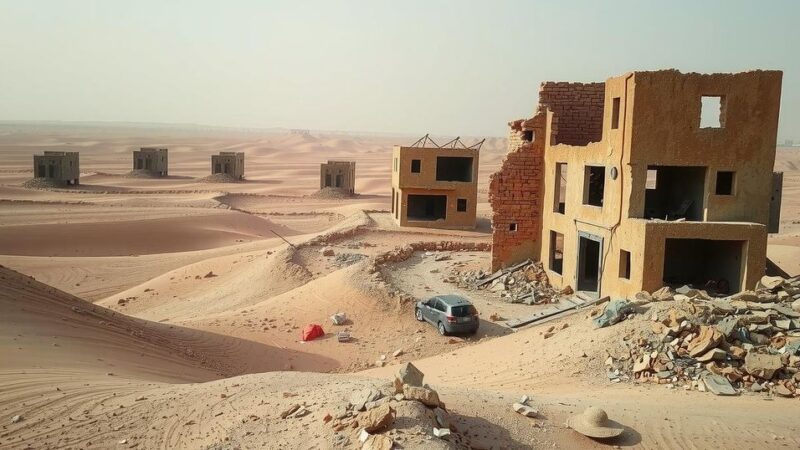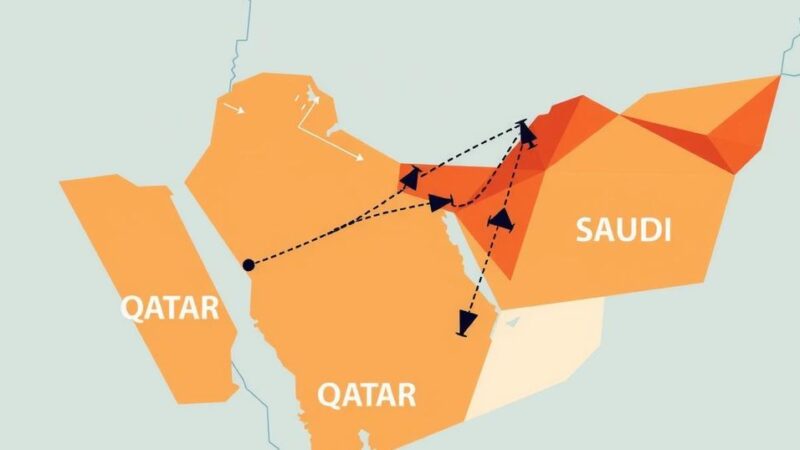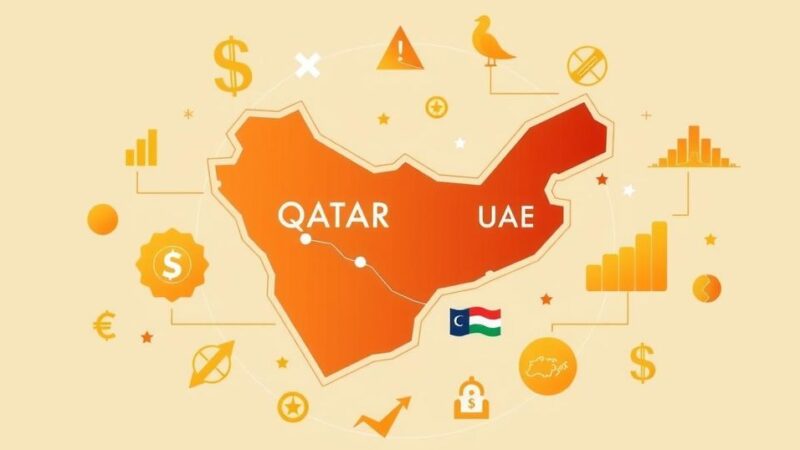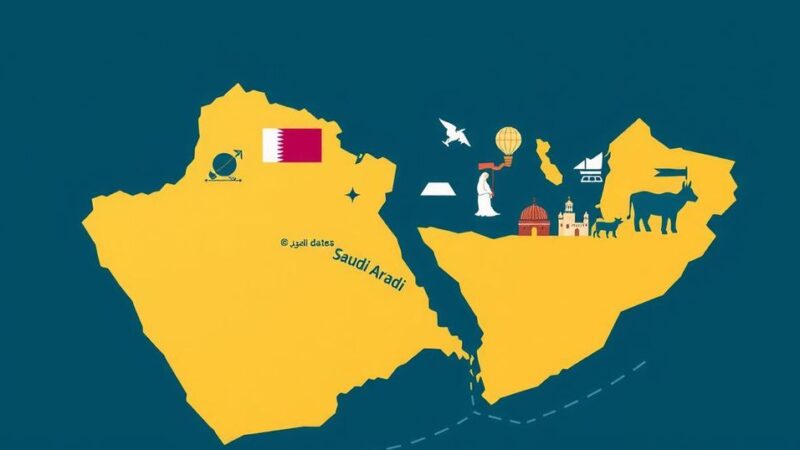Ramadan celebrations in Sudan are marred by soaring prices and a humanitarian crisis caused by ongoing conflict. Families struggle to afford basic goods, and famine grips war-affected areas, with communities facing severe food shortages. Aid agencies are warning of a worsening situation without increased support, as traditional Ramadan customs are sacrificed amid the chaos. The stark realities of current conditions highlight the urgent need for humanitarian assistance in the region.
In Port Sudan, residents are attempting to prepare for Ramadan amid soaring prices due to the ongoing conflict in the country. The dire conditions in war-torn regions have led to famine and severe shortages, overshadowing the traditional spirit of generosity associated with this holy month. At a local market, essential goods like sugar and meat have become unaffordable, making it difficult for families to celebrate the occasion.
Mahmoud Abd El Kader expressed frustration, stating, “We are struggling to afford Ramadan goods,” while Hassan Osman lamented, “Prices are too high, goods are too expensive, people cannot afford them.” The average salary in Sudan is around $60 per month, and many public workers have not received payment during the conflict. Meanwhile, the local currency has drastically devalued, resulting in rampant inflation reaching 145 percent as of January.
In several regions, the availability of food has become a pressing concern, with reports indicating serious shortages. The ongoing fighting between rival factions has resulted in widespread dislocation and hunger, severely affecting supplies. In Darfur and Kordofan, where the conflict has been most intense, entire communities are facing starvation due to blocked supply routes and violent disruptions.
As a result of the conflict, many have resorted to dire measures to survive, and humanitarian efforts are severely hampered by escalating violence. Omar Manago, a humanitarian worker, noted the critical shortages of water and food, with countless families going months without adequate nutrition. Amidst these challenges, UN officials have warned that without greater humanitarian assistance, many could perish from famine.
In the capital, Khartoum, aid distribution efforts have been greatly diminished, and essential Ramadan traditions, such as community meal distributions, have nearly vanished. Sabrine Zerouk recalled how volunteers used to distribute iftar meals, which has ceased amidst the ongoing turmoil. Many families now miss sharing meals together and observing Ramadan customs, as Mohamed Moussa described the loss of festive decorations and family gatherings.
The ongoing conflict in Sudan has drastically impacted the observance of Ramadan, as many families struggle to afford basic necessities and face severe food shortages. Humanitarian organizations are warning that without immediate assistance, the humanitarian crisis could worsen, leading to significant loss of life. The traditional spirit of community and generosity synonymous with Ramadan has been overshadowed by the harsh realities of war and famine. As the violence continues, Sudanese citizens are left grappling with the expenses of a basic Ramadan while thousands in war-torn regions suffer from starvation and dwindling resources, marking a stark contrast to the realities of earlier years. The profound struggles evident in this year’s Ramadan reflect the urgent need for humanitarian assistance and a resolution to the conflict, highlighting a critical point in the nation’s history as it navigates through severe adversity.
Original Source: www.arabnews.com






